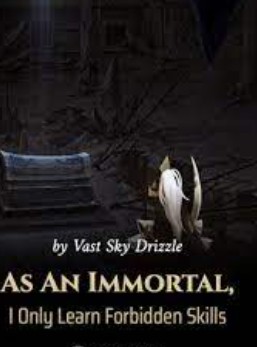Chapter 610 Surrounding the spot to fight for aid
In fact, this is not just a morale issue. If you think about it in depth, it is also related to the officer's reputation and even official career.
The battlefield is like this, and what maintains officers and soldiers should be common interests.
For example, a large part of the reason why Shulka was able to win every battle is that he can consider soldiers from the perspective of soldiers. This is especially obvious in the Soviet army that one-sidedly emphasized spirit, courage, and charge.
Objectively speaking, it is not that the Soviet army does not pay attention to the lives of soldiers.
As a leader of a country or a high-level decision-maker, there is no reason not to value the lives of soldiers, because this is a very simple truth: the army is composed of soldiers, without soldiers, there is no army, and without the army, of course there is no country.
The problem is that the Soviet army’s one-sided emphasis on spirit and courage has seriously lagged behind in this era... These should be things from World War I. Even after World War I equipped troops with Mark secret machine guns in large quantities, this set has been outdated.
But the Soviet army did not realize this.
It can even be said that the Soviet Union did not participate in World War I... It was Tsarist Russia who participated in World War I. The Soviet Union was established in November 1917 and withdrew from the war the next day.
This directly led to the establishment of the Soviet army with a lot of "closed doors" elements: the army has not been tempered by external wars, and many strategies and tactics were accumulated and formed when fighting the White Army at home. Most of the officers with systematic military education are White Army...
Although there were 130,000 British and French troops fighting together with the White Army, the 130,000 so-called Allied forces just wanted to sit in the back and watch the tigers fight. When they realized that the general situation was over, they quickly withdrew to the country. .
The result is the current Soviet tactical system.
Under this tactical system, the most intuitive feeling for soldiers is that their lives are not valued, or they charge meaninglessly on the battlefield and then die.
But Shulka is an outlier among many officers. He attaches great importance to the lives of soldiers, uses tactics flexibly, and brings soldiers out of crisis time and time again, and wins victory at a very small price time after time.
It was true in Brest Fortress, it was true in Moscow, and it is true now in Stalingrad.
Therefore, Shulka can win the support of the officers and soldiers, and the soldiers are willing to fight for him, and dare to fight on the battlefield... The most typical example is the Fifth Infantry Company.
Although the German army is different from the Soviet army, the rules of the battlefield are the same.
So Major Paul standing outside Warehouse No. 5 also faced the same problem:
If you recklessly blow up the subordinates trapped in the warehouse or ignore them, it will not only damage the morale of the troops, but also damage your reputation.
Although prestige is invisible and intangible, it is the basis for an officer to command troops.
At the same time, it is often difficult to cultivate and takes a long time. To destroy it only needs an unapproved command, and then it is difficult or even impossible to restore.
This probably means that Major Paul was abandoned by the soldiers, so his future official career and even his safety cannot be guaranteed.
Major Paul is a smart guy, so of course he wouldn't choose to do this.
After thinking for a while, he ordered the adjutant trapped in the warehouse through the walkie-talkie: "Hold on, I'll send someone to rescue you right away!"
After hearing this, the adjutant felt hopeless in his heart... In fact, the adjutant knew very well that the hope of them returning alive was very slim, and even if they were sensible, the main force should not send people to rescue them.
Because it is easy for the adjutant to know that this is a tactic of "surrounding the spot and attacking aid" set up by the Soviets.
The tactic is an old tactic, but it was cleverly used in a building, which no one expected.
Therefore, the German army should "stop losses" or adopt other tactics at this time.
This is also the reason why the adjutant wanted to commit suicide before.
However, who is willing to give up this only hope? In particular, this hope is still a little flame rekindled in despair, and few people are willing to extinguish it immediately.
Then the adjutant responded: "Yes, Major! But I think we should hurry up, because many of our wounded can't hold on..."
While talking, there was a "bang", the adjutant screamed, and his other leg was hit by another bullet.
The adjutant couldn't help shouting towards the depths of the warehouse: "You bastards, why didn't you kill me?!"
Still no one answered him, not even a cough.
Only a few German soldiers who were also injured climbed up to bandage the adjutant with difficulty.
This is indeed a bit cruel. The Soviet snipers used these German soldiers as targets. If it weren't for the ammunition not allowed, they might have played more "hi".
But this is the battlefield.
There is no mercy on the battlefield, especially when these German soldiers are still standing on Soviet soil.
Outside the warehouse, Major Paul has already begun to organize rescue.
In fact, Major Paul hesitated for a while, because he didn't know whether the strategic goal should be to organize the rescue or occupy the building.
Organizing a rescue may be successful, but this fortress-like warehouse still stands in front of them.
Occupying the building is once and for all, and at the same time, it can also complete the rescue task, because if they can do this, rescuing the wounded is nothing.
After thinking about it, Major Paul decided to choose the latter.
Because he thinks he has the ability to give these hateful Russians a surprise attack, a surprise attack that catches them off guard.
"First of all, I need to know the general situation in the warehouse!" Major Paul ordered to the staff.
"Yes, Major!" The staff officer responded, and then immediately contacted the adjutant trapped in the warehouse through the walkie-talkie.
This also shows the quality of the German army. For example, the staff immediately knew that they could get the information they needed from the adjutant.
"At ten o'clock, one hundred meters away, there is a tank wreck!" The adjutant observed while reporting: "At eleven o'clock..."
There was a "bang" gunshot, and a bullet broke the radio station.
This shot was also shot by Vasily.
Although Shulka ordered that the enemy's radio stations are not allowed to be damaged, specific problems need to be analyzed in detail.
At this time, the enemy was obviously transmitting information to the outside through the radio station, which would be detrimental to future battles, so Vasily immediately destroyed the radio station.
Then Vasily had someone report to Shulka by phone.
Shulka certainly agrees with Vasily's approach. In fact, he needs someone like Vasily who does not stick to orders.
In addition, Shulka also knew that the Germans were preparing for another wave of offensive.
"Get ready for battle!" Shulka said: "They may storm the warehouse!"
(end of this chapter)
RECENTLY UPDATES
3.45







